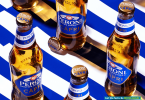NOffLA Speaks – Minister echoes NOffLA policy
“Alcohol is not a normal product for sale in a supermarket like food, milk, minerals or whatever. It is a potentially dangerous product and for that reason, it needs to be treated differently to other products.” These are the welcome words of Minister Roisin Shortall at a recent Oireachtas Committee on Health and Children. These are the very views which have been expressed – and put into practice – by members of the National Off-Licence Association for many years. The development of NOffLA policies on Responsible Trading in the Community have been in sharp contrast to the increasing use of alcohol as a loss leader in the multiple sector.
Minister Shorthall didn’t hesitate in accepting the mistakes of former governments. “It was a retrograde step to liberalise the licensing laws in the way we did, which opened up the question of availability. Availability is a key aspect, not only in terms of normalising our attitude to alcohol but also in terms of making it much more accessible to young people.”
Below cost selling
The Minister also demonstrated her understanding of the practical difficulties in controlling the cheap sale of alcohol when she spoke about the failures to address below cost selling. “There was an earlier commitment to addressing it on the basis of below cost selling. That is easier said than done because there are all kinds of other factors that come into play that determine the price of alcohol where, for example, the large multiples are buying in bulk and get discounts. It is quite difficult to establish the actual cost and whether outlets are selling below cost.” Some E100,000 was spent in one weekend alone last year by multiples and discount advertising showed unprecedented low alcohol prices – including incentives for multiple purchases.
There has also been very clear evidence of below-cost selling. This is a direct example of predatory pricing, with alcohol being used as a loss leader and is exactly what NOffLA warned would be the result of the removal of the ban on below-cost selling.
 Minister Roisin Shortall at a recent Oireachtas Committee on Health and Children
Minister Roisin Shortall at a recent Oireachtas Committee on Health and Children
Pricing
In stark contrast to the approach of former governments, the Minister recognises the impact of the removal of the groceries order on the cheap availability of alcohol. “I hope to bring forward specific proposals on three key areas of concern, the first of which is pricing. Since the Groceries Order was lifted in 2006, we have seen that alcohol is available so cheaply. In fact, there were figures used by the Alcohol Action charity recently which really brought it home to people. In terms of the maximum recommended intake per week to maintain a low rise in relation to alcohol, a woman can get to that point for a mere €6.30 a week and a man can get to the limit of his low risk threshold on €10 a week. That is merely a measure of just how cheap alcohol has become. This is an issue that must be tackled.”
“In tackling this problem, the other key area is the explosion in the number of outlets for alcohol. One can buy alcohol in every corner shop and every filling station. The big concern about that is that alcohol is displayed along with the sweets, biscuits, bread or milk and it normalises the idea of alcohol as a product. Alcohol is not a normal product for sale in a supermarket like food, milk, minerals or whatever. It is a potentially dangerous product and for that reason, it needs to be treated differently to other products. It was a retrograde step to liberalise the licensing laws in the way we did, which opened up the question of availability. Availability is a key aspect, not only in terms of normalising our attitude to alcohol but also in terms of making it much more accessible to young people.”
Secondary purchasing
Commenting on the practice of secondary purchasing, the Minister also demonstrated her clear understanding of the issue and in focussing on the responsibility of those adult customers who might purchase alcohol for under age consumption. “I am not satisfied that there has been adequate enforcement of the law in that area. It needs to be made clear to people that they are committing an offence by buying alcohol for the purpose of passing it on to those who are under age. I would like to see us being much more vigorous in that regard and there will be proposals on that in the new strategy.”
The introduction of minimum pricing is driven by a desire for a more responsible sale and marketing of alcohol. This is a policy and philosophy to which members of the National Off-Licence Association subscribe and for which the multiple sector has little or no regard. NOffLA welcomes the Minister’s statement and looks forward to the publication of the legislation which will realise this policy.
Northern Ireland to introduce minimum pricing
The Northern Ireland Executive appears to have agreed on the introduction of legislation to control and raise the minimum price per unit of alcohol.
In an interview on BBC’s The Politics Show, Northern Ireland Health Minister, Edwin Poots, said that the NIE was determined to introduce such new legislation. The Minister also accused supermarkets of irresponsible trading in their sale of alcohol at well below cost price. “I am aware of one supermarket in the run up to Christmas not last year, the previous year [2009], having a £20 million loss leader on alcohol”.
Minister Poots’ announcement follows a consultation process put in train by the Northern Ireland Executive last March, during which the NIE said that the minimum price for a unit of alcohol should be between 40 and 70 pence.
Price comparison
Alcohol has long been much cheaper in Northern Ireland than in the Republic. This is despite increased UK VAT rates, a reduction in Irish alcohol duties and an increase in exchange rates. Taking the suggested minimum alcohol prices, a six-pack of beer would sell for a minimum of between £4.40 (40p per unit) to £7.70 (70p per unit). At the time of writing this article, Tesco, Asda, Sainsbury and Morrisons were all offering a variety of six packs at prices well below these proposed minimums.
Such a minimum pricing structure would also impact on wine prices currently available in Northern Ireland. Assuming ten units of alcohol in a bottle of wine, the minimum price would be set at between £4 and £7. A perusal of Northern Irish supermarkets provides many instances of wines currently selling for below these proposed minimum prices.
A similar initiative, which was considered by the Scottish Parliament in 2009, failed to realise the proposed 45p price per unit in adopted legislation. Should the NIE pass such legislation, Northern Ireland would become the first government in Europe to introduce a minimum pricing control for alcohol.
Cross-border shopping is currently not as problematic as it once was. Nielsen data shows that wine volumes in Northern Ireland dropped by 10% in 2010 and Kantar Worldpanel Data further shows that cross-border shopping overall has stabilised. The introduction of minimum pricing for alcohol in Northern Ireland would further stabilise the issue.








